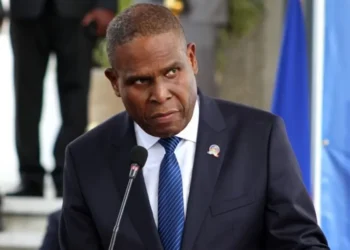Between January and April 2024, the Dominican Republic expelled nearly 30,000 Haitians, described as “irregular migrants”, raising serious concerns about the risk of a humanitarian crisis and questioning the effectiveness of Haitian diplomacy.
Dominican Interior Minister Jesús Vásquez Martínez defended the expulsions, citing joint operations between the military and police forces to “reinforce national security”.
However, these actions raise serious doubts about respect for fundamental human rights, not least because of damning testimonies.
The deportees describe arbitrary arrests, confiscation of property and physical violence, contradicting the principles of the 1999 bilateral agreements which theoretically provide a framework for dignified and orderly repatriation.
Yet in the face of these repeated violations, the Haitian government remains strangely silent, with no firm condemnation or visible diplomatic strategy.
This passivity exacerbates the vulnerability of Haitian citizens and weakens the already strained relations between the two countries.
An urgent response is required: Port-au-Prince must demand a transparent dialogue with Santo Domingo to address the structural causes of migration, such as political instability and economic insecurity in Haiti.
At the same time, concrete measures to improve local living conditions are essential to reduce the population’s forced exodus.
The international community, in particular the UN and CELAC, should play a mediating role to guarantee respect for migrants’ rights and avoid an escalation of tensions.
Stay connected with Hebdo24
Via Our WhatsApp Channel https://whatsapp.com/channel/0029Va7ff6tEFeXrqCON9u3j
Soutenez Hebdo24 : pour une information libre et fiable.
Faire un don📲 Don’t miss anything with Hebdo24
Receive our latest news directly
on your phone via our official WhatsApp channel.
Join the Hebdo24 WhatsApp channel










